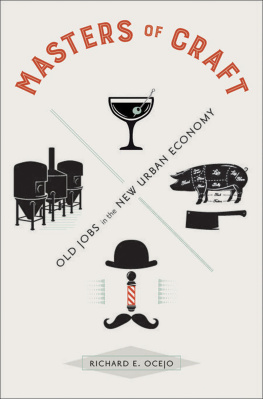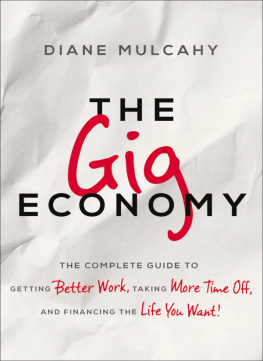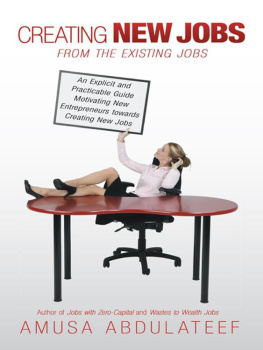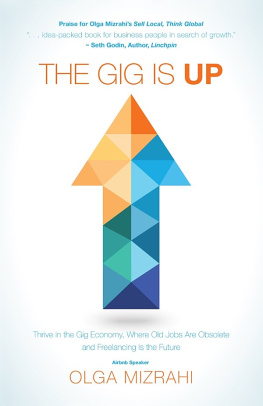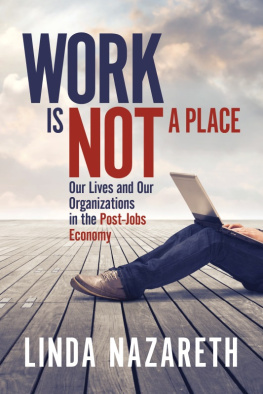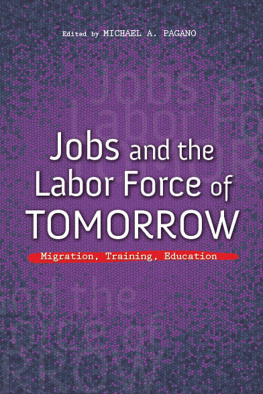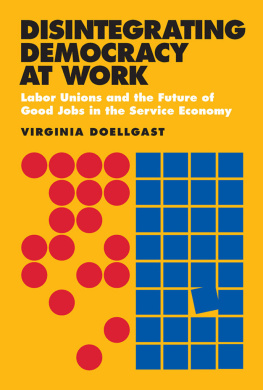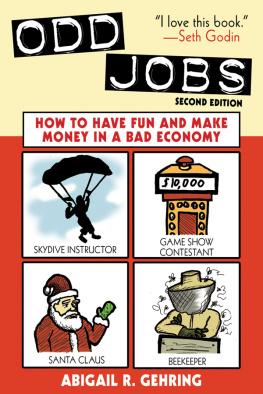
MASTERS OF CRAFT
MASTERS OF CRAFT

Old Jobs in the New Urban Economy

RICHARD E. OCEJO

PRINCETON UNIVERSITY PRESS
Princeton & Oxford
Copyright 2017 by Princeton University Press
Published by Princeton University Press, 41 William Street,
Princeton, New Jersey 08540
In the United Kingdom: Princeton University Press, 6 Oxford Street,
Woodstock, Oxfordshire OX20 1TR
press.princeton.edu
Jacket art courtesy of Shutterstock
All Rights Reserved
ISBN 978-0-691-16549-3
British Library Cataloging-in-Publication Data is available
This book has been composed in Whitman, Burford and Helvetica Neue
Printed on acid-free paper.
Printed in the United States of America
1 3 5 7 9 10 8 6 4 2
For Chantal, my heart, and for Rita, the answer to every question

CONTENTS


ACKNOWLEDGMENTS

Before I begin I have a few people I would like to thank. First, I reserve the biggest thanks for the people in these jobs, workplaces, and industries who opened up their lives to me. This book would not exist without your generosity. Ill never forget the six years I spent in your company, and I remain fascinated by your work.
Although initially skeptical when all I talked about was the importance of ice in cocktails instead of finishing my dissertation, Sharon Zukin encouraged me to start a side project on cocktail bars. I truly appreciated her early support and guidance. Similarly, Eric Schwartz showed tremendous support for this project as it expanded and evolved (while probably wishing I was focusing more on my first book). I thank him for always believing in me and getting this book under way. When Eric left Princeton University Press to work at Columbia, I was pretty sure I was going to stay at Princeton for this book, because I enjoyed the overall experience so much the first time around. Still, I wanted to meet Erics replacement before I made a final decision. Im so lucky Princeton hired Meagan Levinson, who has been the perfect person to work with through the bulk of the writing. Her editorial skills are remarkable, and Ive benefited tremendously from her ability to see both the forest and the trees, and to know how they relate to each other. I would also like to thank Sara Lerner and Samantha Nader at Princeton for guiding this book through production, and Jennifer Harris for her helpful copyediting corrections and suggestions.
Im blessed to have colleagues who are also good friends. Always first are my CUNY boys, who have offered wonderful comments on this project and joined me in many a cocktail over the years, especially Alex Frenette, Jon Wynn, and Jeff London. Ive always written in solitude, but for some reason I joined a writing group a few years ago, when I first started thinking about what the book would actually look like. (And somehow that group turned into an editorial board for a journal.) For their insightful thoughts at a key step in the process I would like to thank Greg Smithsimon, John Krinsky, and Debbie Becher. I had the pleasure of attending two of the Experiencing the Creative Economy conferences at the University of Torontos Martin Prosperity Institute at important junctures in this project. From these experiences I want to especially thank Kevin Stolarick, Brian Hracs, Doreen Jakob, Pacey Foster, Oli Mould, and Atle Hauge. I must also thank the following folks for their feedback, encouragement, and friendship during this journey: Michaela DeSoucey, Andrew Deener, Black Hawk Hancock, Damian Williams, Tim Dowd, Yasemin Besen-Cassino, Japonica Brown-Saracino, Richard Lloyd, Randol Contreras, Wendy Guastaferro, Jen Johnson, and Shyon Baumann. Finally, thank you to the three reviewers who gave so much of their time to offer so many wonderful thoughts on how to improve this book (and sorry the first draft was so long).
Thanks to the work-study students who helped me transcribe some of the audio recordings over the years. Other than their services, my small annual amount of departmental travel funding, and a highly appreciated award from John Jays Office for the Advancement of Research to pay for the index, I received no other formal support (financial or otherwise) for this project and book.
No ones story of how they met their romantic partner is better than the one of how I met my amazing wife, Chantal. We met at 4 a.m. on Bourbon Street in New Orleans, outside the Old Absinthe House, while I was conducting research at Tales of the Cocktail, and she was covering it for the Village Voice. A smoke-filled conversation on a humid night, while surrounded by cocktail people, turned into a few dates back in New York, which became the relationship that defines my world. Chantal, you saw almost every step of this project, the highs and lows, and always had an open ear, a piece of advice (always from the heart), and a warm embrace for me. Shortly after I finished my fieldwork our daughter, Rita, was born. Rita, Im thrilled Ive gotten to see so much of you as you have grown from a baby to a toddler to a little girl (in part because of your love of steak). Im already so proud of you, and I cant wait to see what else you have in store. I love you both.

PREFACE | 
| THE DAILY GRIND |

Thus a mans work is one of the things by which he is judged, and certainly one of the more significant things by which he judges himself.
Everett Cherrington Hughes
The subway is never too crowded when Joaquin goes to and from work. A bartender by trade, Joaquin, 29, works at Death & Co., one of the most popular cocktail bars in New York City. His shift runs from 6 p.m. to 2 a.m. on Tuesdays, Thursdays, Fridays, and Sundays, but he arrives a couple of hours before the bar opens, and leaves an hour or so after last call (sometimes stopping at another cocktail bar nearby for a nightcap or two before heading home). So he commutes to work in the late afternoon and returns home around 3 a.m., waiting bleary-eyed on a near-empty platform for the F train back to Brooklyn. But the hours are worth it to make and serve cocktails for a living. I walk into work feeling good, I walk out of work feeling way better. Tired as hell, but its a satisfying tired. I sleep well.
Next page
